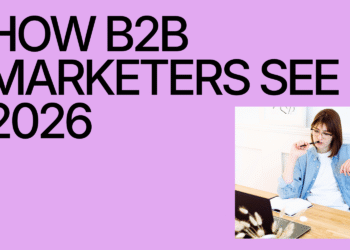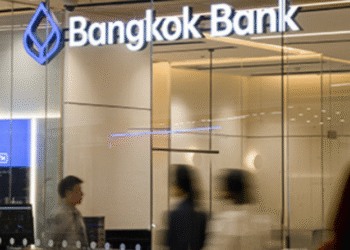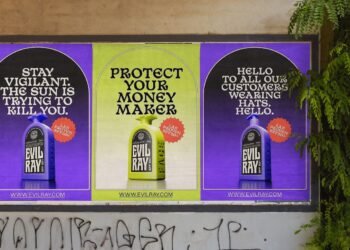Now is a great moment to generate a legal definition of a brand.
Mondelēz, owner of iconic brands such as Oreos, Chips Ahoy! and Wheat Thins, is suing grocery chain Aldi over “… Aldi’s look-alike product packaging. The suit says that Aldi “blatantly copies” Mondelēz signature snacks in a way that is “… likely to deceive and confuse customers,” as reported in The New York Times.
The New York Times continued its story, writing “The lawsuit also claims that some of Aldi’s packaging threatens to ‘dilute the distinctive quality of Mondelēz’s unique product packaging’ and ‘irreparably harm Mondelēz and its valuable brands.”
“Mondelēz is seeking monetary damages and a court order preventing Aldi from selling products that Mondelēz claims infringe on its trademarks.” BBC News wrote, “Court documents showed that Mondelēz International said Aldi uses similar packaging likely to ‘deceive’ consumers and ‘ride the coattails’ of the company’s ‘attraction, fame and prestige.”
This article is part of Branding Strategy Insider’s newsletter. You can sign up here to get thought pieces like this sent to your inbox.
BBC continued, “In the lawsuit, Aldi is accused of trademark infringement, unfair competition, and unjust enrichment. Mondelēz said it is seeking damages. Mondelēz described Aldi’s business model as hinging on ‘low-priced private label products that resemble the look and feel of well-known brands’”.
Trade dress and trademark protection are at the heart of this suit. Trade dress refers to non-verbal elements of a product’s presentation, including its design, packaging, and color scheme. Trade dress protects the product image that consumers associate with a particular brand. To qualify for trade dress protection, a design must be:
- Distinctive: The design must have achieved distinctiveness in the marketplace. In other words, consumers recognize the design as belonging to a specific source.
- Non-functional: The design elements are essentially tangential to the product’s use.
Trade dress differs from trademark. A trademark is a name, word, sign, symbol, or design intended to differentiate a product, service, or organization from others. In other words, a trademark tells us the “source” of the product. Trade dress visually, but non-functionally, delivers that product’s established image; in the Mondelēz case, this means its packaging.
Mondelēz’s concerns are not just that Aldi is blatantly copying its products’ packaging, but also that consumers will be confused. Consumers will think that they are buying Oreos when, in fact, they are buying Aldi’s store-brand Original chocolate cream sandwich cookies. Mondelēz is also concerned that there will be trademark dilution. Mondelēz is concerned about weakening its trademarks.
What is critical to point out is that legally, brand does not play a role as there is no legal definition of a brand. Trial lawyers can use the word brand as much as they like, but legally, there is no brand definition. Aldi can say the brand is Y, and Mondelēz can say the brand is Z.
While the definition of trademark is standard and legal, there are hundreds of definitions of a brand. Every ad agency, market researcher, consultant, and client has their own definition.
We must have a globally accepted legal definition of a brand.
Why is this important?
Think of the trademark Crest. The trademark Crest identifies the source of fluoride toothpaste. But, the brand Crest identifies not the source of fluoride toothpaste, but rather the source of the promise that you will die with your own natural teeth attached to your head. This is a big promise. If we get it wrong, we come out with a new product, and we say, “Well, what are we going to call it?” But, if we get it right, as Crest accomplished, we brand the promise. Then, any new product that is consistent with that promise should be called Crest.
Now, this has implications. How do we own that identity of that promise in court as well as in the customer’s mind? For Crest, the goal in marketing is to own the promise of a lifetime of healthy teeth. Whether it is a mouthwash, toothbrush, or whitening strips, nobody, no imitator, copycat, or parasite should be allowed to steal that identity.
Yet, today you can steal that promise.
There is nothing wrong with competition. However, we should all be against somebody getting such a free ride that they can steal that identity and become the source of that promise.
One imagines that Mondelēz has spent decades creating a relevant, differentiated experience for each of its iconic brands. It is really an outrage that, having invested decades of product development, marketing investment, and public relations, some entity can come along and steal that brand identity. The next time a customer is looking for Oreo’s or Wheat Thins, expecting the Oreo or Wheat Thin promise and sees a package design that looks like Oreo’s or Wheat Thins, the customer says, “Well, since the design is the identity of that promise, maybe this other one is just the same.”
Stealing a brand identity means stealing a promise. It means stealing the identification that Oreo’s and Wheat Thins are superior sources of specific, special promises. Those promises are valuable to customers and shareholders. This is because all cash flow only has one source. That one source is a customer exchanging money for what you offer. There is no other source of cash flow. So, we must create enduring customer value for a sustainable increase in shareholder value. No company can create sustainable value for its shareholders without creating enduring value for its customers.
What is a brand promise? Here is a definition in a simple sentence. Buy this brand, and you will get this experience. There are a variety of techniques and constructs for operationalizing brand promise. If you have established an identity in the marketplace, nobody should be allowed to confuse the consumer and say, “Well, you can also buy this brand and get the same experience.” Let them develop their own brand identity and associate their own promise with it.
Trademarks and brands are different. Trademarks tell you the source of the product. Brands tell you the source of the experience. You trademark products, but you brand promises. A promise creates an expectation. The product is the evidence that you conform to that expectation. Trademark products, but brand promises. (It is a real shame that the American Marketing Association uses the trademark definition to define a brand.)
Mondelēz can only work within the law. The laws revolve around trademarks, not brands. Brands do not legally exist.
Now is the time for a legal definition of a brand so brand owners can protect their relevant, differentiated experiences. It is just common sense.
It is common sense to keep in mind that we cannot create sustainable value for shareholders unless we create enduring value for our customers. It is common sense to keep in mind that a brand identifies more than a product. It identifies and distinguishes a promise associated with a product. It is common sense that powerful brands are more than mere famous marks. They are familiar promises from an authoritative source.
Further, it is common sense that we must concern ourselves with unfair brand dilution. There must be a fairness doctrine that says unfair value transfer, unfair brand value dilution, and unfair brand competition. This does not mean being against fair brand competition. It means being against parasite brands that suck the lifeblood out of brand building.
Finally, it should be common sense to consider damage to brand value when evaluating damages in trademark cases. Multiple companies have metrics for assessing brand value.
Mondelēz is fighting for more than its trade dress and its trademarks. Mondelēz is fighting for its brands. It is time the legal system caught up.
Contributed to Branding Strategy Insider by: Joan Kiddon, Partner, The Blake Project, Author of The Paradox Planet: Creating Brand Experiences For The Age Of I
At The Blake Project, we help clients worldwide, in all stages of development, define and articulate what makes them competitive at pivotal moments of change. This includes pricing strategies that propel their businesses and brands forward. Please email us to learn how we can help you compete differently.
Branding Strategy Insider is a service of The Blake Project: A strategic brand consultancy specializing in Brand Research, Brand Strategy, Brand Growth, and Brand Education
Post Views: 5
















